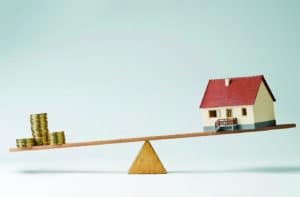
The best spring market in years was cut short by the coronavirus crisis, leaving some unsure where the state’s housing market is headed.
As Massachusetts residents enjoy the first weeks of summer weather and the early stages of relaxing“stay at home” orders, where are we with real estate? And where are we headed? Are there reasons to be optimistic despite the uncertainties surrounding our health, safety and livelihoods?
The first quarter of 2020 showed great promise in the real estate market. We were in the ninth year of a steady recovery from the devastation of real estate during the Great Recession. During the recovery single-family median prices had risen modestly, but steadily. A low inventory of homes for sale kept sales volume flat and demand high.
All indicators pointed to the best spring market for homes sales in many years. Compared to the first quarter of 2019, single family home sales this year had increased by 2 percent and the median price rose 6 percent. New luxury unit construction of condominiums had done even better with sales bumping up 10 percent and median prices streaking up 17 percent.
No ‘Irrational Exuberance’
A strong economy, stock market and employment were then crushed by a health crisis, not an economic one. Our data from public records on closed sales in April show that single–family home sales fell by 14 percent. Since those sales went under agreement in February and March, before the full impact of the pandemic was felt, the decline in sales was just the tip of the iceberg. In April pending sales, the ones that were negotiated and went under purchase and sale agreements in April fell by 47 percent compared with April 2019.
So where might we be headed? Let’s look at the last two major recessions and crashes in the local real estate market to see if history might give us clues. In the early 1990s, sales volume declined for three straight years resulting in a total decline of 30 percent in the number single-family homes sold. The median price also declined for three straight years for a total 10 percent decline. The Great Recession was twice as bad. Sales volume and the median sale price both declined for six years before finally bottoming out. The total decline in sales was 40 percent and the decline in median price was 20 percent.
![]()
Agents Face New Challenges in the Virus’ Wake
Anthony Lamacchia: Data Offers Proof This Isn’t 2008
Colleen Barry and Dino Confalone: What Will Happen to Luxury Condos?
Kurt Thompson: What Realtors Need to Know About What’s Changed
Bernice Ross: How to Price Property in a Post-COVID Market
Should we expect a recession and a crash in the real estate market like either of the last two? Let’s consider economic conditions leading up to those recessions. In both cases weaknesses and mistakes in our financial institutions preceded the crash in the real estate market and the subsequent recession. Inadequate underwriting standards led to mortgage delinquencies and ultimately the failure of banking and financial institutions.
For example, in the early 2000s the willingness of mortgage lenders to write easy mortgages allowed real estate prices to rise rapidly in an example of “irrational exuberance,” to repeat the memorable phrase used by former Federal Reserve Chairman Alan Greenspan in 1996 to describe the stock market. The median price of a single-family home rose by more than 10 percent for six straight years. The total increase in the median price from 2000 to 2005 was 90 percent. A massive and classic bubble in real estate prices led to a “great” recession in residential real estate.
Market Supports Speedy Recovery
So, what is different now? First and foremost is the absence of a bubble in real estate prices. In the past six years we have not seen a 90 percent increase in the median price. The number is actually 24 percent, a number that is supported through 2019 by rising personal income, low unemployment, and a strong stock market.
Also encouraging is the willingness of the Treasury and the Federal Reserve to do “whatever it takes” to support the American people and its businesses to keep people in jobs, in homes and on the road to recovery. Recognizing the scale of the economic distress and the very sudden spike in unemployment, the economic stimulus provided by the federal government has been massive. And there is the possibility of more to come. Perhaps this level of support and stimulus will result in a faster and more effective recovery than in past recessions.
Besides the lack of a bubble in real estate prices and determined government support of the economy, market conditions are geared to support a speedy recovery. There is general agreement that there is a shortage of housing and a strong demand for homes to purchase. Those facts are likely to keep prices – and consumer confidence – from declining precipitously. Keeping home prices propped up will maintain equity for current homeowners and allow those in economic distress due to job loss to avoid foreclosure by taking the exit ramp of a sale of a home they cannot afford.
Digging a bit deeper, the promise of low mortgage interest rates should support active interest from buyers. And speaking of buyers, unfortunately the ranks of the unemployed are disproportionately populated by workers with lower–paying jobs like restaurant and retail workers. At least at the outset of the coming recession, higher earning consumers – those more likely to be looking for a home purchase than for a rental apartment – are still employed and are still homebuying prospects.
 If you need further reasons to be optimistic about real estate, you can take a look at what the major real estate economists have seen in their crystal balls: a frightful second quarter, but a strong second half this year and a return to pre-pandemic sales volume by the first quarter of 2021. Predictions for median prices this year range from a decline of 2.7 percent to an increase of 1 percent,
If you need further reasons to be optimistic about real estate, you can take a look at what the major real estate economists have seen in their crystal balls: a frightful second quarter, but a strong second half this year and a return to pre-pandemic sales volume by the first quarter of 2021. Predictions for median prices this year range from a decline of 2.7 percent to an increase of 1 percent,
Many in the industry feel that once the country is back in business, pent-up demand for real estate will revive the market. The prevailing idea is that the big spring market got postponed to a big summer market.
Tim Warren is CEO of the The Warren Group and publisher of Banker & Tradesman.





